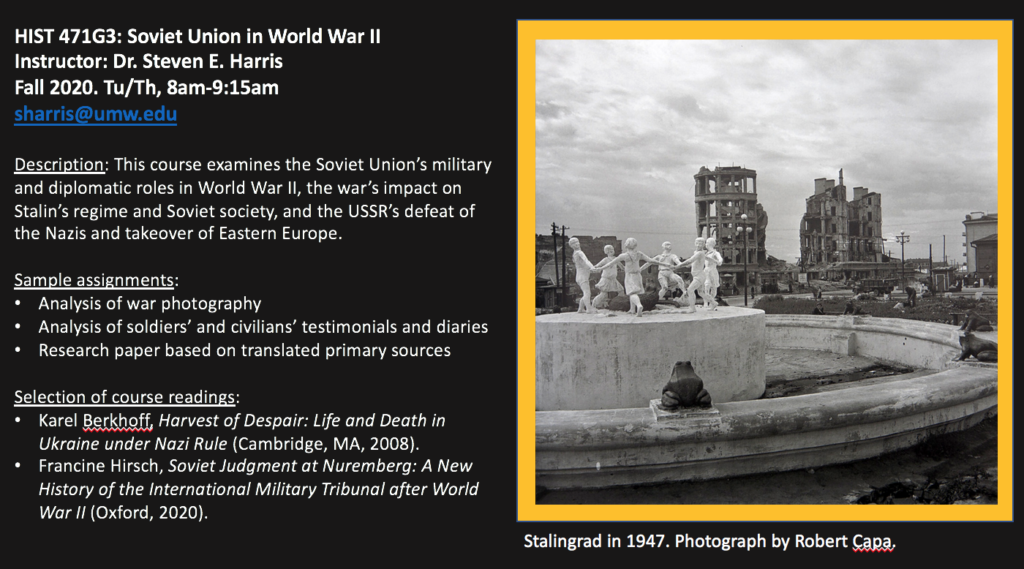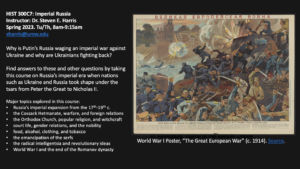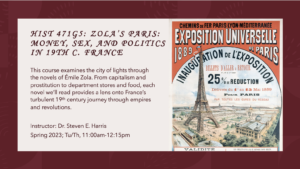Steven E. Harris is a historian of modern Russia and Europe. He is presently researching and writing a new book, Autocratic Airways: Aeroflot and the Russian Jet Age from Stalin to Putin. This project has been supported by a Verville Fellowship at the National Air and Space Museum in Washington, DC and a summer stipend from the National Endowment for the Humanities.
In addition to his book project, Harris writes on the present state of aviation in Russia and the impact of Western sanctions on Putin’s regime in response to Russia’s war against Ukraine.
Harris teaches courses on Russian and French history, Stalinism, socialism, World War II, conspiracy theories, and aviation and space history. His research interests include the Russian Jet Age; technology in authoritarian regimes; and transnational contacts during the Cold War.
His first book Communism on Tomorrow Street: Mass Housing and Everyday Life after Stalin (The Woodrow Wilson Center Press and the Johns Hopkins University Press, 2013) shows how Soviet citizens’ move from communal housing to single-family apartments transformed the post-Stalinist ‘thaw’ from an elite into a mass phenomenon.
Education
- Ph.D., University of Chicago, 2003. History.
- M.A., University of Chicago, 1998. History
- B.A., University of North Carolina at Chapel Hill, 1995. History and Political Science.
Spring 2024 courses
HIST 122: History of Western Civilization II
HIST 300D4: The Soviet Century
HIST 468: History of Stalinism
Recently Taught Courses At a Glance
Commentary on Russia
“Sanctions Are Spoiling Russia’s Plans to Make Its Own Airplanes.” The Russia File, Kennan Institute, April 9, 2024.
“West Sanctions Russian Aviation, But Moscow Decides to Keep Planes Flying Despite Risks.” Russia Matters, Belfer Center for Science and International Affairs, Harvard Kennedy School, October 26, 2023.
“With Russia’s War in Ukraine, Aeroflot Faces Unfriendly Skies.” Jordan Center Blog, NYU, May 18-19, 2022.
Publications
“Aeroflot Routes to Baghdad: Soviet-Iraqi Relations during the Iran-Iraq War (1980-1981),” in Russian-Arab Worlds: A Documentary History, edited by Eileen Kane, Masha Kirasirova, and Margaret Litvin, 324-333 (Oxford: Oxford University Press, 2023).
“The World’s Largest Airline: How Aeroflot Learned to Stop Worrying and Became a Corporation,” Laboratorium: Russian Review of Social Research 13, no. 1 (2021): 20-56.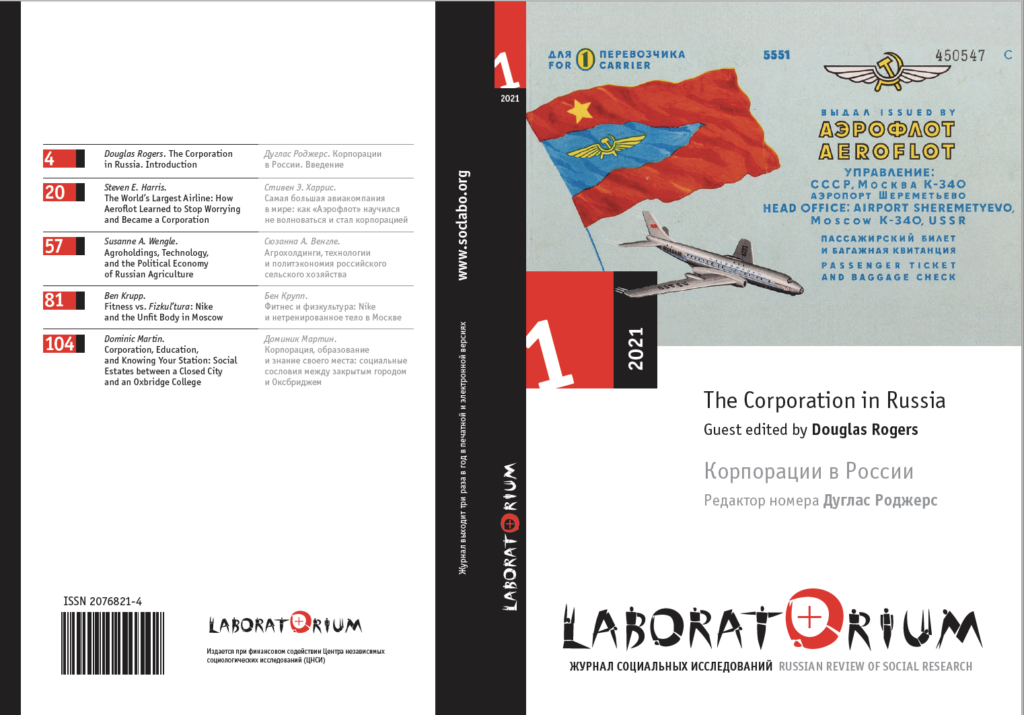
“Dawn of the Soviet Jet Age: Aeroflot Passengers and Aviation Culture under Khrushchev,” Kritika: Explorations in Russian and Eurasian History 21, 3 (Summer 2020): 591-626.
Daria Bocharnikova and Steven E. Harris, “Second World Urbanity: Infrastructures of Utopia and Really Existing Socialism.” Journal of Urban History 44, no. 1 (2018): 3-8.
“Soviet Mass Housing and the Communist Way of Life,” in Everyday Life in the Russian Past and Present, edited by Choi Chatterjee, David L. Ransel, Mary Cavender, and Karen Petrone (Bloomington: Indiana University Press, 2015). Harris–Soviet Mass Housing and the Communist Way of Life
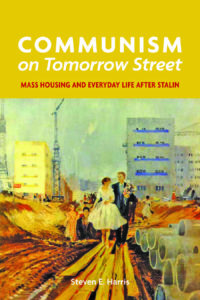 Communism on Tomorrow Street: Mass Housing and Everyday Life after Stalin. Baltimore: The Woodrow Wilson Center Press and the Johns Hopkins University Press, 2013.
Communism on Tomorrow Street: Mass Housing and Everyday Life after Stalin. Baltimore: The Woodrow Wilson Center Press and the Johns Hopkins University Press, 2013.
Two Lessons in Modernism: What the Architectural Review and America’s Mass Media Taught Soviet Architects about the West, Trondheim Studies on East European Cultures and Societies 31 (Trondheim: Norges Teknisk-Naturvitenskapelige Universitet, 2010).
“‘I Know All the Secrets of My Neighbors’: The Quest for Privacy in the Era of the Separate Apartment,” in Borders of Socialism: Private Spheres of Soviet Russia, ed. Lewis H. Siegelbaum (New York: Palgrave Macmillan, 2006), 171-189. Harris–I Know All the Secrets of My Neighbors
“‘We Too Want to Live in Normal Apartments’: Soviet Mass Housing and the Marginalization of the Elderly under Khrushchev and Brezhnev,” The Soviet and Post-Soviet Review 32, no. 2-3 (2005): 143-174.
“In Search of ‘Ordinary’ Russia: Everyday Life in the NEP, the Thaw, and the Communal Apartment,” Kritika: Explorations in Russian and Eurasian History 6, 3 (Summer 2005): 583-614.

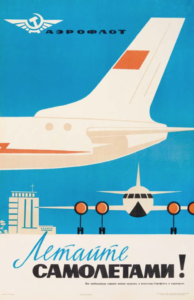
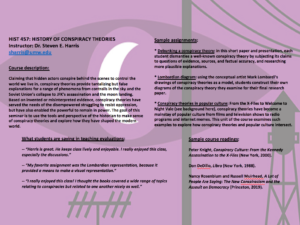
 __
__